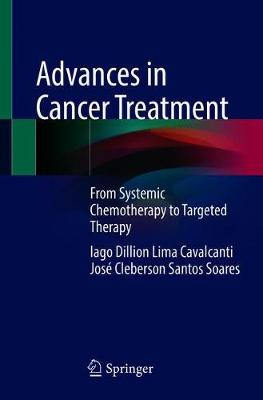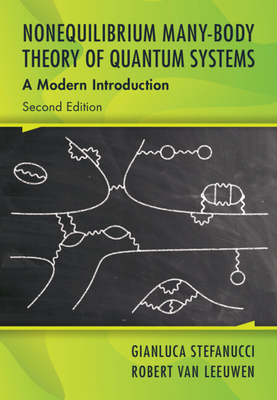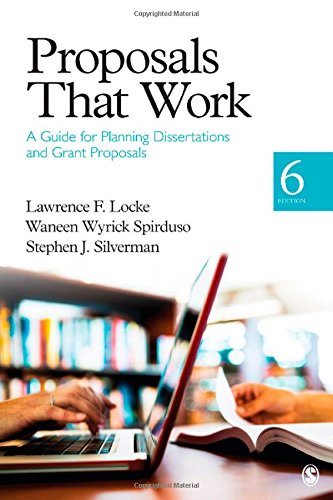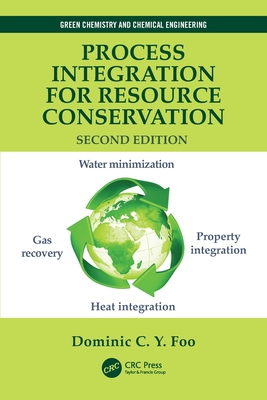图书简介
This work covers the pathophysiology of cancer, exploring the difficulty of optimal treatment due to the complexity and diversity of cancer types. The search for distinctive molecular biology characteristics of tumor cells is especially relevant in the identification of overexpressed receptors and proteins that can be used as a target for cancer treatment.We highlight the main therapeutic modalities, particularly conventional systemic chemotherapy, addressing its mechanisms of action, therapeutic classes and even the toxic effects. We also describe the main tumor markers, their importance in the diagnosis and treatment of cancer, and the specificity of tumor cells.The first chapters serve as an introduction to the central topic of this book, targeted therapy. Key aspects of target therapy, such as classes of drugs, immunotherapy, monoclonal antibodies, checkpoint inhibitors, cancer vaccines and tyrosine kinase inhibitors are presented, and, for each one, the benefits, as well as the adverse effects are reported. Chapter 6 compares conventional systemic chemotherapy and targeted therapy, identifies the risks and benefits and also the eligibility criteria for patient care. The possibility of targeted therapy replacing conventional chemotherapy is discussed while reviewing studies that demonstrate the benefits of combining both types of treatment. Finally, the introduction of pharmaceutical nanotechnology to improve antineoplastic agents is addressed in the last chapter and sets the direction for future research in cancer treatment.This is a valuable resource for many health professionals including physicians, pharmacists, nurses, researchers and students interested in the field of oncology.
Introduction.- Cancer: concepts and epidemiology.- A brief history of cancer.- What is Cancer?.- Cancer Epidemiology.- Cancer development and immunology.- Cell cycle.- Cell cycle control: the function of cyclins.- Cancer triggering agents.- Proto-oncogenes.- Tumor suppressor genes.- Development of tumor mass.- Cancer Immunology.- Discovery of tumor markers.- Cancer diagnosis.- Impact of the discovery of tumor markers.- Main tumor markers for cancer diagnosis.- Alpha-fetoprotein (AFP).- Human Chorionic Gonadotropin (?-HCG).- Mucin-like cancer-associated antigen (MCA).- CA 15.3.- Carcinoembryonic antigen (CEA).- Bladder tumor antigen (BTA).- Telomerase.- Nuclear matrix protein (NMP 22).- Cyfra 21.1.- Prostatic acid phosphatase (PAP).- Prostate-specific antigen (PSA).- CA 125.- CA 19.9.- p53.- CA 72.4.- K-ras.- HER2.- Cancer staging.- Conventional cancer treatment.- Therapeutic modalities of cancer.- Surgery.- Radiotherapy.- Antineoplastic chemotherapy.- Classification of antineoplastic agents by cycle.- Specific cycle antineoplastics.- Nonspecific antineoplastic agents.- Classification of antineoplastic agents by chemical structure and function.- Alkylating agents.- Antimetabolites.- Plant-derived antineoplastics.- Antitumor antibiotics.- Chemotherapy toxicity.- Hematological toxicity.- Liver toxicity.- Cardiac toxicity.- Anthracyclines.- Fluoropyrimidine.- Taxanes.- Pulmonary toxicity.- Neurological toxicity.- Renal toxicity.- Gastrointestinal toxicity.- Metabolic changes.- Targeted therapies in cancer treatment.- Overexpressed receptors on tumor cells.- Immunotherapy.- Monoclonal antibodies.- Types of monoclonal antibodies.- Side effects of monoclonal antibodies.- Checkpoint Inhibitors.- Side effects of checkpoint inhibitors.- Cancer Vaccines.- Vaccines in cancer prevention.- Vaccines for the treatment of cancer.- Non-specific immunotherapies.- Tyrosine kinase inhibitors.- Imatinib.- Gefitinib.- Erlotinib.- Sorafenib.- Dasatinib.- Nilotinib.- Lapatinib.- Adverse events of tyrosine kinase inhibitors.- Conventional chemotherapy vs. targeted therapy.- Differences between conventional chemotherapy and targeted therapy.- Risks and benefits of conventional chemotherapy compared to targeted therapy.- Eligibility criteria for the indication of the targeted therapy.- Side effects of targeted therapy.- Can targeted therapy replace conventional chemotherapy?.- Targeted therapy associated with conventional chemotherapy.- Pharmaceutical nanotechnology applied to cancer.- Pharmaceutical nanotechnology.- Classification of nanosystems.- Liposomes.- Micelles.- Polymeric nanoparticles.- Solid lipid nanoparticles.- Magnetic nanoparticles.- Metal nanoparticles.- Main functions of nanosystems in cancer.- Pharmaceutical nanotechnology in cancer diagnosis.- Pharmaceutical nanotechnology for cancer treatment.
Trade Policy 买家须知
- 关于产品:
- ● 正版保障:本网站隶属于中国国际图书贸易集团公司,确保所有图书都是100%正版。
- ● 环保纸张:进口图书大多使用的都是环保轻型张,颜色偏黄,重量比较轻。
- ● 毛边版:即书翻页的地方,故意做成了参差不齐的样子,一般为精装版,更具收藏价值。
关于退换货:- 由于预订产品的特殊性,采购订单正式发订后,买方不得无故取消全部或部分产品的订购。
- 由于进口图书的特殊性,发生以下情况的,请直接拒收货物,由快递返回:
- ● 外包装破损/发错货/少发货/图书外观破损/图书配件不全(例如:光盘等)
并请在工作日通过电话400-008-1110联系我们。
- 签收后,如发生以下情况,请在签收后的5个工作日内联系客服办理退换货:
- ● 缺页/错页/错印/脱线
关于发货时间:- 一般情况下:
- ●【现货】 下单后48小时内由北京(库房)发出快递。
- ●【预订】【预售】下单后国外发货,到货时间预计5-8周左右,店铺默认中通快递,如需顺丰快递邮费到付。
- ● 需要开具发票的客户,发货时间可能在上述基础上再延后1-2个工作日(紧急发票需求,请联系010-68433105/3213);
- ● 如遇其他特殊原因,对发货时间有影响的,我们会第一时间在网站公告,敬请留意。
关于到货时间:- 由于进口图书入境入库后,都是委托第三方快递发货,所以我们只能保证在规定时间内发出,但无法为您保证确切的到货时间。
- ● 主要城市一般2-4天
- ● 偏远地区一般4-7天
关于接听咨询电话的时间:- 010-68433105/3213正常接听咨询电话的时间为:周一至周五上午8:30~下午5:00,周六、日及法定节假日休息,将无法接听来电,敬请谅解。
- 其它时间您也可以通过邮件联系我们:customer@readgo.cn,工作日会优先处理。
关于快递:- ● 已付款订单:主要由中通、宅急送负责派送,订单进度查询请拨打010-68433105/3213。
本书暂无推荐
本书暂无推荐
















